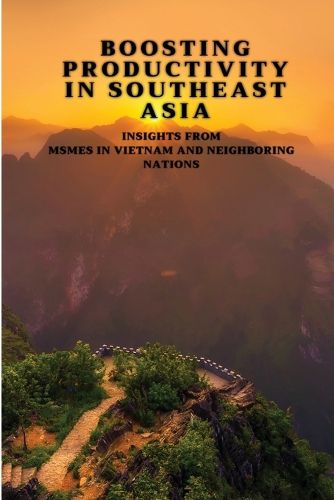Boosting Productivity in Southeast Asia

Boosting Productivity in Southeast Asia
This title is printed to order. This book may have been self-published. If so, we cannot guarantee the quality of the content. In the main most books will have gone through the editing process however some may not. We therefore suggest that you be aware of this before ordering this book. If in doubt check either the author or publisher’s details as we are unable to accept any returns unless they are faulty. Please contact us if you have any questions.
This Book aims to measure firm-level labour productivity and technical efficiency using different
techniques such as Data Envelopment Analysis (DEA) and Stochastic Frontier Analysis (SFA). It
then analyses the factors that drive firm technical efficiency or productivity, especially the interrelationship
between firm efficiency/productivity, corruption, government assistance, innovation,
and gender. The study focuses on Micro, Small and Medium-sized Enterprises
(MSMEs), which are considered a lifeblood of economies. This thesis consists of three studies
that make use of two different datasets of MSMEs. The first two studies use biennial survey data
of manufacturing MSMEs in Vietnam covering four waves between 2009 and 2015. This data
resulted from collaboration between Danish and Vietnamese agencies. The third study utilises
World Bank cross-country data for manufacturing MSMEs in Vietnam, Indonesia, and the
Philippines in 2009 and 2015.
The first study investigates the inter-relationship between corruption, government assistance and
firm efficiency for MSMEs in Vietnam. The study treats corruption, government assistance, and
firm efficiency as endogenous variables in order to control for feedback effects between them.
There exist only a small number of firm-level studies on corruption and firm efficiency. In
addition, this study investigates the role played by government assistance in this relationship.
Two contending hypotheses are tested in the analysis. The first suggests that corruption enhances
firm efficiency by helping to "grease-the-wheels". Under this hypothesis corruption aids
efficiency by overcoming bureaucratic obstacles. The second hypothesis, referred to as "sandthe-
wheels", suggests that corruption reduces efficiency. The study finds a strong nexus between
firm efficiency, bribery, and government assistance. The effect of bribing on firm efficiency is
significantly positive, supporting the "grease-the-wheels" hypothesis. The study also finds that
government assistance is effective in improving firm efficiency
This item is not currently in-stock. It can be ordered online and is expected to ship in 7-14 days
Our stock data is updated periodically, and availability may change throughout the day for in-demand items. Please call the relevant shop for the most current stock information. Prices are subject to change without notice.
Sign in or become a Readings Member to add this title to a wishlist.


